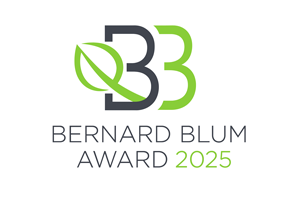Biocontrol
Towards an efficient and sustainable agriculture
Protecting plants in a sustainable and eco-responsible manner
To ensure yield and quality of the crops, it is imperative to protect the cultivated plants against diseases.
Reduce the use of chemical fungicides
For decades, conventional fungicides have been used intensively and almost exclusively. Although their effectiveness is undeniable, their over-consumption can lead to associated risks (emergence of resistant strains, environmental impact, residues in agricultural produce …).
Responding to a societal and governmental need for ecological solutions in agriculture
France is increasingly investing in a sustainable approach to phytosanitary management. In January 2020, it updated its Ecophyto plan for the third time and announced the application of Ecophyto II+ to reduce dependence on phytosanitary products. The signature of the European Green Deal in December 2019, makes the European countries follow this same objective.
A Promising Technology: Biocontrol
To reduce the use of conventional products while guaranteeing yield and quality, biocontrol is one of the best solutions.
What is biocontrol?
The French « Code Rural et de la Pêche Maritime » defines biocontrol products as « agents and products using natural mechanisms within the framework of integrated pest management ».
They include in particular :
« Macroorganisms and plant protection products comprising micro-organisms, chemical mediators such as pheromones and kairomones and natural substances of plant, animal or mineral origin.» (Article L.253-6).
Most of countries have a similar vision of what biocontrol is, without giving it a legal definition. It could be summarized as “ the use of natural products in pest management”.
France sees this technology as the future of agriculture
In November 2020, the French Ministry of Agriculture published its Biocontrol Deployment Strategy with the aim of accompanying and supporting the development of biocontrol on the territory.
Our innovative active substance
An innovative active substance: Amoeba lysate (see photo on the left)
We discovered that the lysed (i.e. killed, burst) cells of the amoeba Willaertia magna C2c Maky, had strong fungicidal properties.
Several plant diseases concerned
First of all on oomycetes (microorganisms close to fungi and responsible for downy mildews and late blight) and then on phytopathogenic fungi such as rusts, powdery mildews, etc..
This was highlighted in laboratory tests and then, since 2019, has been verified in field trials.
AXPERA, the first biofungicide based on an amoeba lysate
For the first time, Amoéba offers an effective and safe biofungicide, based on a class of microorganisms never used before in agriculture: amoebas.
Why AXPERA?
AXPERA is Amoéba’s expertise at the service of a new era in plant protection. The prefix AXP, for “Amoéba Experimental Product”, recalls the different experimental formulations of the product (AXP12, AXP13, AXP17). Through this new brand, Amoéba highlights the values of innovation, performance, responsibility and renewal (See more: press release).
Our differentiation
Dual mode of action
This active substance has a dual mode of action : it stimulates plant defences (an indirect effect on diseases), and also inhibits germination of pathogen spores (a direct effect on the pathogen)
Remarkable field efficacy
The very numerous trials have shown that the field efficacy was remarkable, often far superior to that of biocontrol products on the market.
Broad spectrum of activity
Broad spectrum against multiple pathogens of major economic importance (mildews, rusts …) on many crops (grapes, potatoes, vegetables, cereals, soybeans …)
Field trials
It is necessary and even mandatory to conduct field trials for the following reasons:
- To measure the technical value of the product and to know the application rates:
These trials make it possible to determine the effective rate (which can vary according to the target pathogen) and to select the best formulations, to find the best conditions of use, to compare the experimental product with conventional or biocontrol reference products already on the market. The objective is to measure the technical value of the product and to approach the interest it may bring to farmers, even if these trials are not “practical value” trials.
- To obtain the MA (Marketing Authorization):
It is mandatory in most countries of the world to prove efficacy in the field to obtain a MA. This is the case in Europe, Brazil, but not in the USA except in California.
These tests must follow strict procedures
Trials must follow official protocols (which specify, for example, the number of replicates, the number of treatments to be performed and their frequency, the scoring to be done, etc.) and must be performed by GEP (Good Experimental Practices) approved CROs (Contract Research Organizations). At least two years of experimentation are required in Europe. The results are then analyzed and are the subject of a dossier presented to the authorities along with the toxicological and ecotoxicological dossier.

